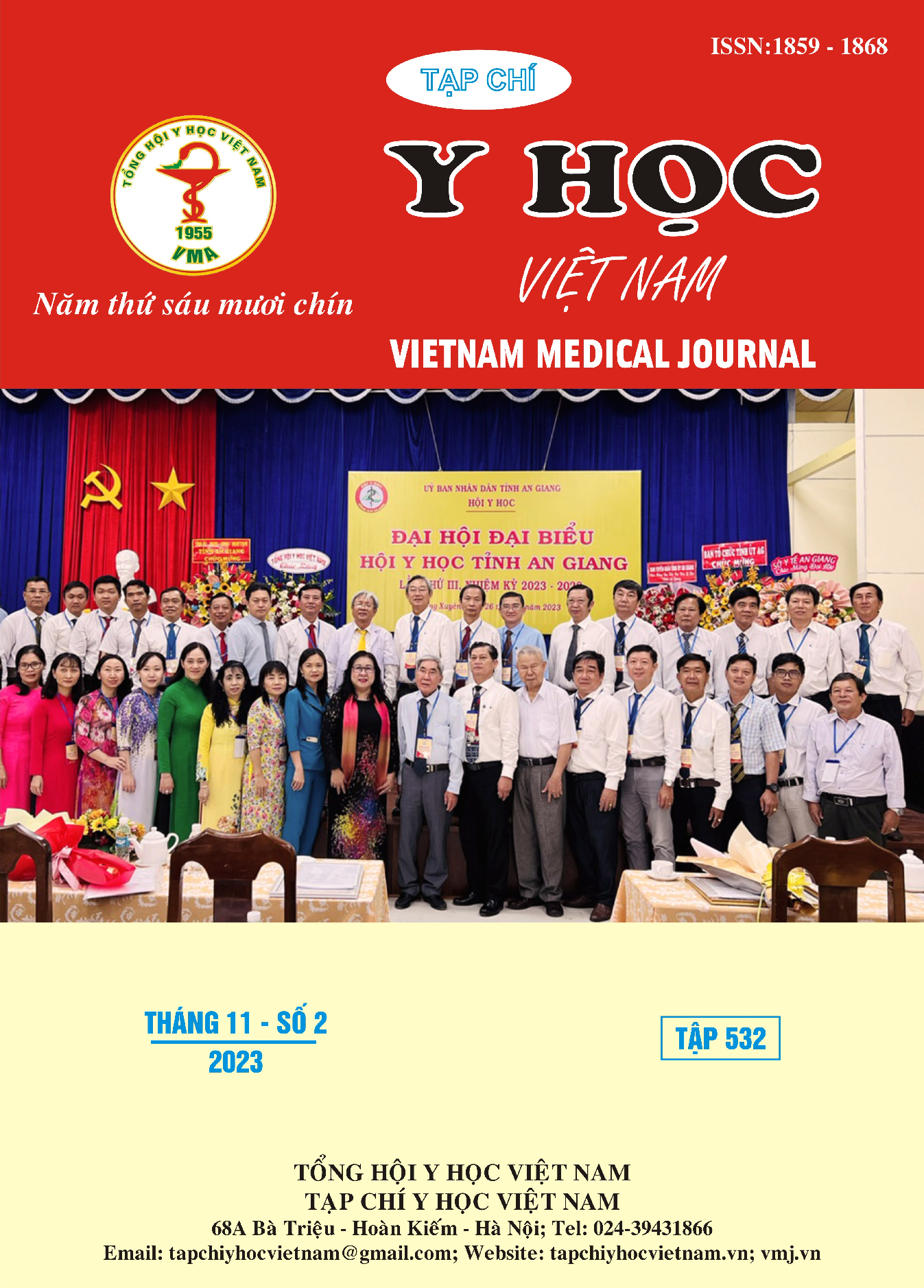THE ASSOCIATION BETWEEN GESTATIONAL DIABETES AND GROUP B STREPTOCOCCUS COLONIZATION IN PREGNANT WOMEN AT PHUONG CHAU INTERNATIONAL HOSPITAL CAN THO
Main Article Content
Abstract
relationship between gestational diabetes and group B streptococcal colonization in pregnant women at Phuong Chau Can Tho International Hospital. Materials and methods: This descriptive cross- sectional was conducted a study in 300 pregnant women performed a 75 gram-2 hour oral glucose tolerance test from 24 to 28 weeks of gestation and performed a Real-time GBS-PCR from 35 to 37 weeks of gestation at Phuong Chau Can Tho International Hospital from August 2022 to June 2023. Results: The rate of gestational diabetes mellitus was 33.0%. The overall GBS colonization rate was 23%. Gestational diabetes mellitus increased the risk of group B streptococcus infection (OR 5.6, 95% CI: 3.2
10.0, p < 0.01). The result glycemic in glucose tolerance are associated with an inrcreased risk of GBS infection; GBS infection and high 2 hour glucose tolerance are associated with an increased risk of failed fasting glycemic control in gestational diabetes mellitus. Conclusion: Gestational diabetes mellitus increases the risk of GBS infection at 35-37 weeks of pregnancy.
Article Details
Keywords
GDM and GBS infection, group B streptococcal infection, diabetes with increased GBS infection.
References
2. Trần Đình Hùng và cộng sự (2022), Khảo sát tác nhân vi sinh vật gây bệnh viêm nhiễm sinh dục dưới ở phụ nữ khám phụ khoa và yếu tố liên quan, Tạp chí Y học Việt Nam, 517(1).
3. Phùng Thị Lý và cộng sự (2020), Tỷ lệ mang liên cầu khuẩn nhóm B ở 35-37 tuần thai kỳ và hiệu quả của kháng sinh dự phòng lây nhiễm trước sinh, Tạp chí Phụ sản, 18, tr 19-26.
4. Phạm Thu Trang và cộng sự (2023), Tỷ lệ mang liên cầu nhóm B và kết quả thai kỳ ở sản phụ sinh tại Bệnh viện Phụ sản Hà Nội. Tạp chí Khoa học và Công nghệ Việt Nam, 65(7).
5. Bogiel, T. and et al (2022). An Application of Real-Time PCR and CDC Protocol May Significantly Reduce the Incidence of Streptococcus agalactiae Infections among Neonates. 11(9), p1064.
6. Chen, X and et al (2023). The risk factors for Group B Streptococcus colonization during pregnancy and influences of intrapartum antibiotic prophylaxis on maternal and neonatal outcomes. 23(1), 1-9.
7. Jiménez-Escutia, R. and et al (2023). High Glucose Promotes Inflammation and Weakens Placental Defenses against E. coli and S. agalactiae Infection: Protective Role of Insulin and Metformin. 24(6), p5243.
8. Pykało-Gawińska, D. and et al (2021). Gestational weight gain and glycemic control in GDM patients with positive genital culture. 60(2), p262-265.
9. Schindler, Y. and et al (2020). Group B Streptococcus serotypes associated with different clinical syndromes: Asymptomatic carriage in pregnant women, intrauterine fetal death, and early onset disease in the newborn. 15(12), p0244450.


